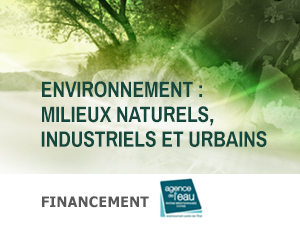Sediments of urban ponds: a functional resource of smart cities?
Retention and infiltration ponds (RP/IP) are used as an alternative technique for stormwater management since the ‘90s. Suspension matters drained during rainy episode settle at the bottom of the ponds and accumulate as sediments. Managers in charge of these structures usually consider the regular dredging as a mandatory task to maintain the storage, filtration and infiltration functions of stormwater. However, the lack of data and regulations leads to a legal and operational void concerning management of sediments from stormwater ponds. With the exception of dredged sediments legally considered as wastes from the time they are excavated, limiting the options for treatment and valorization. Their management generates a relevant cost for entities in charge, while sediments may constitute a valuable organic and/or mineral potential resource when it comes to reduce the exploitation of limited natural resources (aggregates, river sand, organic amendment...). However, the accumulation of inorganic (Cu, Pb, Zn, Cr, Cd, As…) and organic (PAH, PCB, alkylphenols, pesticides…) micropollutants
during the normal functioning of urban stormwater ponds represent a major limitation to valorization possibilities, which is needed to be better handled.
Main objectives of DESIR project are :
- Improve the knowledge of geochemical composition and behavior of urban ponds sediments, and their spatio-temporal variabilities,
- Make an inventory of operational practices for the present management of stormwater sediments,
- Determine the functions that these sediments, considered as neosoils, are carrying out (biological function, ecological, aesthetic, societal…)
- Identify the management and valorization pathways of urban ponds sediments, and determine the most appropriate valorization options
To reach these goals, a first part of the project consists to realize an up-to-date state-of-the-art to make an inventory of all the published scientific or operational works related to RP/IP sediments. If possible, unpublished works (data not published, internal reports) will be included. A synthesis will be produced, with the objective to determine the needs in research to complete the previously synthesized data. Finally, identification of current and future management options and their comparison will authorize to produce operational recommendations for the purpose of main actors of RP/IP management.
http://www.graie.org/othu/progr_desir.htm


